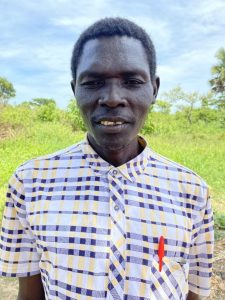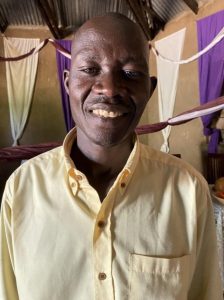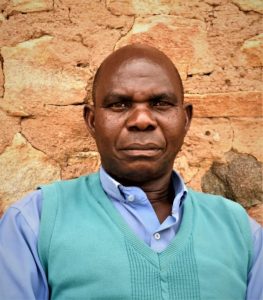Hello, my name is Odipio Jamba, 47 years old and...
Read MoreEvangelism
implementation approach
Goal: Community Transformation through Evangelism and Discipleship
1. Introduction:
Our proposal seeks to establish an evangelism and discipleship project aimed at fostering spiritual growth and community empowerment. Rooted in the belief that transformation begins with individuals, this initiative seeks to equip believers to share their faith effectively while nurturing a culture of discipleship.
2. Objectives:
– Evangelism: To reach out to individuals within the community, sharing the message of hope and salvation.
– Discipleship: To provide ongoing support and resources for believers to deepen their faith and grow in their relationship with God.
– Community Transformation: To empower individuals to become agents of positive change within their families, workplaces, and neighborhoods.
3. Target Audience:
– Residents of [insert target community], spanning diverse age groups and backgrounds.
– Existing church members seeking to strengthen their faith and engage in evangelism and discipleship.
4. Implementation Strategy:
- Evangelism Training Workshops: Conduct regular workshops to equip believers with practical skills and tools for effective evangelism, including communication techniques, scriptural knowledge, and overcoming common challenges.
- Community Outreach Events: Organize evangelistic events such as community rallies, door-to-door visits, and service projects to engage with individuals and share the gospel message in a relevant and impactful manner.
- Small Group Discipleship: Establish small group discipleship programs where believers can gather for Bible study, prayer, accountability, and mutual support in their spiritual journey.
- Mentorship Program: Pair experienced mentors with new believers to provide personalized guidance, encouragement, and discipleship training.
- Leadership Development: Identify and train emerging leaders within the community to facilitate evangelism and discipleship initiatives, ensuring sustainability and scalability of the
project.
5. Monitoring and Evaluation:
Regular assessments will be conducted to measure the project’s impact on participants’ spiritual growth, community engagement, and transformation.- Feedback mechanisms will be implemented to gather insights from participants, enabling continuous improvement and adaptation of program activities.
6. Partnerships:
Collaborate with local churches, ministries, and community organizations to leverage resources, networks, and expertise in implementing the project.
Seek support from donors, sponsors, and volunteers who share a passion for evangelism, discipleship, and community development.
Impact Stories
Disciple making disciples
implementation approach
DMDT is a three month harmonizing classroom learning small group activities, personal reflection, practical service and community learning.
The training comes in three phases ;
i) Lecture phase (30 days)
ii) Practical service (30 days)
iii) Leadership phase couching (30 days)
In the lecture phase, focus is for participants to know God, his word and world, seek transformation and renew mind and personal physical and spiritual growth.
Followed by the practical service the class or individual are sent to serve God in the world. Participants have a chance to discover their abilities and share the good news of Jesus Christ.
Lastly in the coaching phase, participants learn the heart of a couch, asking effective questions , listening well and friendly accountability and setting SMART goals.Upon successful completion of training participants are issued a certificate signed by the organization
Discipleship making is a foundational aspect of Feat Africa’s holistic approach to community development and transformation. At Feat Africa, discipleship making goes beyond traditional religious connotations; it encompasses a commitment to nurturing and empowering individuals to become agents of positive change within their communities. The process begins with the identification and training of dedicated individuals who exhibit leadership potential and a passion for serving others. These individuals are equipped with the necessary knowledge, skills, and values to lead by example and inspire others to join in the journey of community transformation.
Through mentorship and discipleship programs, Feat Africa fosters a culture of continuous learning and growth among its staff and volunteers. Mentors provide guidance, support, and accountability to disciples as they navigate the challenges and opportunities of serving their communities. This mentorship extends beyond practical skills development to include personal and spiritual growth, nurturing disciples who are not only competent but also compassionate and grounded in their values.
Discipleship making at Feat Africa is rooted in the principles of servant leadership and empowerment. Disciples are encouraged to lead by example, serving their communities with humility, integrity, and a commitment to excellence. They are empowered to identify and address the unique needs and challenges facing their communities, working collaboratively to develop sustainable solutions that promote holistic well-being. By investing in discipleship making, Feat Africa cultivates a network of passionate and capable leaders who are dedicated to creating positive change and building thriving communities.
Ultimately, discipleship making at Feat Africa is driven by a vision of transformational impact that extends far beyond individual efforts. Disciples are encouraged to multiply their influence by mentoring and equipping others to become leaders and change-makers in their own right. This ripple effect ensures that the impact of discipleship extends across generations, creating a legacy of empowerment, resilience, and hope for the future. Through discipleship making, Feat Africa continues to inspire and mobilize individuals to join in the collective pursuit of a better, brighter tomorrow for all.
Impact Stories




